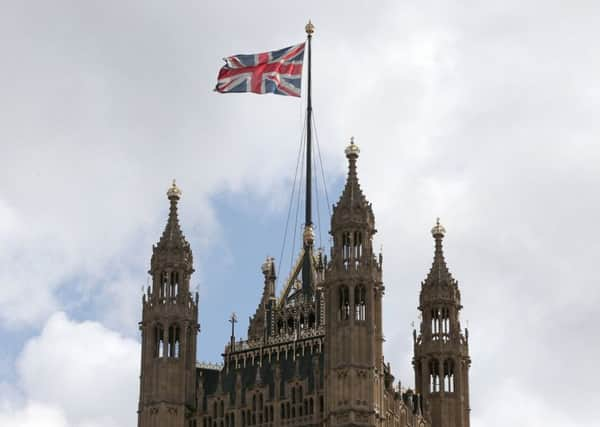Brexit and rise of English nationalism may break up the UK and force me to move to Scotland – William Wallace


For the first time since southern Ireland left the United Kingdom a century ago, these have become live questions. Boris Johnson’s deal with the EU puts an administrative border between Northern Ireland and the British mainland: something that Theresa May declared as ‘‘unthinkable’’ and Johnson himself promised Ulster Unionists would never happen.
The impact of that decision on Scotland and Wales is significant. Holyhead, in north-west Wales, is the third largest port by traffic in the UK, handling trade between Ulster and the mainland. Paperwork and checks will slow the flow, and damage the prosperity of the area.
Advertisement
Hide AdAdvertisement
Hide AdFor the first time, people at Westminster have started to talk about the adverse effects of ‘‘English nationalism’’.


The Welsh government is sharply critical of the damage that the proposed deal would inflict on the Welsh economy; although the majority of Welsh voters supported Brexit three years ago. Johnson has swept away Ulster’s interests, and ignored those of Scotland and Wales.
Majorities in Ulster and Scotland voted to remain, although the Democratic Unionist Party supported Brexit. Northern Irish business is strongly critical of our current Prime Minister’s proposals, and public opinion there is warming to the idea of unification with Ireland. The SNP government in Edinburgh is talking of holding another referendum on independence next year, and is confident that a majority to break away from England is within sight.
Does that leave you relieved that English taxpayers will no longer have to subsidise Scottish and Ulster public services? Or does it make you anxious that England alone, without the other countries that constituted the United Kingdom, would be a less significant country?
Advertisement
Hide AdAdvertisement
Hide AdIt’s hard to predict the consequences of a break-up of the United Kingdom, let alone whether that might in time also extend to Wales. Opinion polls already show that Conservatives and Leave supporters, particularly across southern England, are happy to see Northern Ireland and Scotland go, and with it a third of the UK’s current land mass. Complaints about paying money to the EU have spread over to discontent at contributing to those poorer nations.
England would lose more from the separation than the financial transfers it makes. Our nuclear deterrent base in Scotland, and other military assets, would go; it’s possible that such a smaller country might find other states questioning its privileged role at the UN and other international organisations.
If an independent Scotland then joined the EU, the English would become like the Swiss: surrounded on all sides by EU neighbours, dependent on them for access and cooperation, struggling to negotiate bilateral agreements. Switzerland has 140 such agreements with the EU so far, with further difficult negotiations now under way.
Life might not be easy for England’s poorer post-industrial North, either. England is the most centralised country in the democratic world, with the central government controlling the flow of tax revenue and expenditure.
Advertisement
Hide AdAdvertisement
Hide AdPublic investment, in transport, infrastructure, university research and innovation, has favoured the South through successive governments since the 1980s: reinforcing success, rather than working to reduce the sharp regional imbalances which industrial decline left behind.
Neither the Conservatives nor Labour have champions of the North among its leaders: national politics revolves around London and the marginal seats of the home counties. Outside the EU, London’s financial and associated services may flourish; but prosperity is unlikely to trickle down to neglected towns and cities elsewhere. And voters in the South will resist paying to regenerate the North.
The break-up of Britain may well prove one of the many unintended consequences of Brexit. The easy promises of three years ago are turning into hard choices. English nationalism harks back to the glories of imperial Great Britain, without taking into account the contributions that Britain’s other nations made to that imperial past. It thrives on distrust of foreigners. And if Britain breaks up, I might join my son in Edinburgh.
Lord Wallace of Saltaire is a Lib Dem peer.